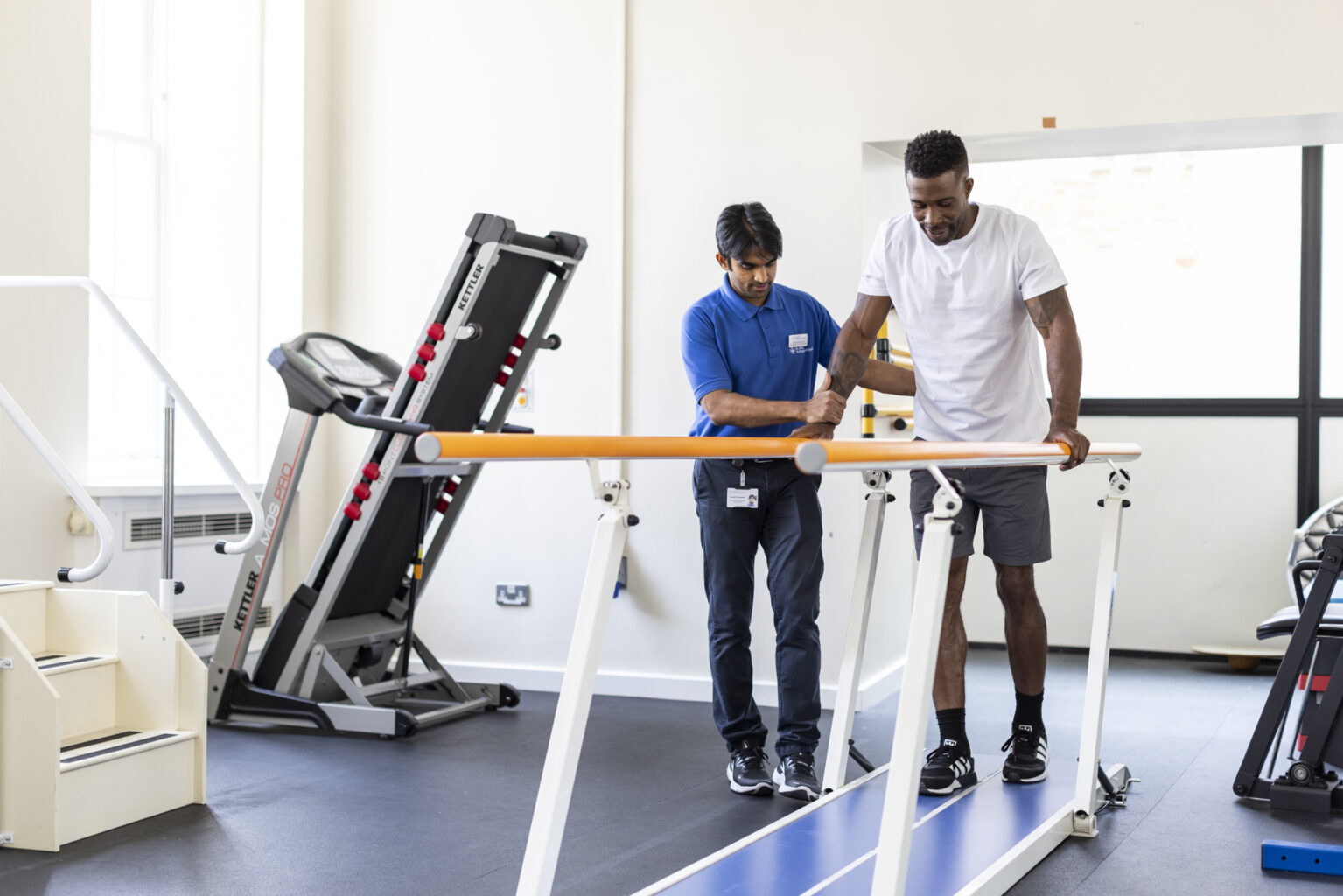Contact number: 020 7806 4060
Speech & Language Therapy following a stroke
Our speech and language team can help those with speech, language, communication, voice and swallowing difficulties. This includes stroke rehabilitation of understanding and expressive language, as well as reading, writing and numeracy skills. We also provide full assessment and management advice of dysphagia (swallowing difficulties) to help patients eat safely through texture modification, safe swallow strategies and dysphagia therapy.
We offer goal-oriented, patient-centred, impairment therapy, based on the latest clinical evidence. We work in partnership with patients, families and the wider multi-disciplinary team to enable effective rehabilitation. Communication is an imperative part of daily life. Being able to talk to others – in group or with friends – is important to any person so that they can build relationships. Speech and language therapists understand the impact of communication on daily life.
We provide an intensive stroke rehab package with a wide range of therapies available every day, tailored to meet your unique needs. Having intensive therapy early in your rehabilitation journey is key to reaching your full potential but can also have a great impact later in your journey, when you’re working towards a specific goal.
Every person is affected differently after suffering from a stroke. We see each patient as an individual and aim to work in partnership with you and your family to ensure the best medical care, fullest and fastest possible recovery. We promise rapid access to an expert assessment of your symptoms and a personalised treatment plan.
Tailored rehabilitation plan
Depending on your needs and goals, we can offer rehab services on an inpatient or outpatient basis. We triage all referrals to establish what will be of most benefit and help you achieve your desired outcomes.
When you arrive at the hospital, you will be assessed by our medical and nursing team to ensure you have the most appropriate management plan. You will then be assessed by our therapy team who will work with you to develop a tailored language therapy programme aimed at maximising your recovery and achieving your goals.
What does the therapy involve?
Depending on the patient’s needs, speech and language therapists work on various aspects, including:
- Speech Articulation: Helping patients improve their ability to produce clear and intelligible speech sounds.
- Language Comprehension and Expression: Having a stroke can cause certain speech and language impairments. Language comprehension exercises can help with understanding spoken and written language and expressing thoughts and ideas.
- Communication Strategies: Speech and language therapists can teach patients alternative means of communication, such as using augmentative and alternative communication (AAC) devices or techniques.
- Voice: Addressing voice problems or changes in pitch and volume.
- Cognitive-Communication Skills: Improving memory, attention, problem-solving, and other cognitive abilities related to communication.
- Swallowing Rehabilitation: Many stroke patients experience swallowing difficulties (dysphagia). Speech and language therapists help with techniques and exercises to improve swallowing safety and efficiency. This may involve dietary modifications and strategies to prevent aspiration.
It’s important to note that the exact type and duration of language therapy, and the number of therapy sessions needed, will vary depending on the individual’s needs and their recovery progress. Speech and language therapists work closely with other healthcare professionals, such as doctors and occupational therapists, to provide comprehensive care for stroke patients.
After therapy
Once you are ready to leave us, our therapists will educate and support you and your family. Patients are often given exercises and activities to practice at home to reinforce therapy goals. This includes guidance on strategies for communication and swallowing management at home. Therapists may recommend and provide training in the use of communication aids, such as communication boards, speech-generating devices, or mobile applications that assist stroke patients in expressing themselves.
After you’ve been discharged, we’ll arrange follow-up medical reviews with you where we can check-in and see how you’re doing.
How much does private speech therapy cost at St John & St Elizabeth Hospital
Please note, our speech and language therapy service is for adults only.
|
Speech and Language Therapy initial appointment (60 mins) |
£315 |
|---|---|
|
Speech and Language Therapy follow-up appointment (60 mins) |
£210 |
How to pay for your treatment
If you’re… paying for yourself
Did you know you don’t need private medical insurance to come to St John & St Elizabeth Hospital? As a self-pay patient, you can access safe, outstanding quality health care at times to suit you.
For scans and tests, as well as to see most consultants, you’ll still need to be referred by a medical professional like your GP, but as a self-pay patient, the process is more straightforward. You won’t need authorisation from an insurance provider, and you’ll have greater choice of therapist and appointment times.
If you’re… insured
St John & St Elizabeth Hospital is approved by all major medical insurance companies. If you have a personal private health insurance policy, or your company provide it for you, you can use it to pay for your care from your initial consultation through to treatment, surgery and aftercare such as physiotherapy. Not all private health insurance plans cover the same things. It’s very important to check exactly what you are covered for with your insurance provider.

